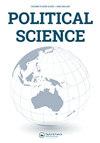选民对女性候选人的支持
IF 1.2
4区 社会学
Q3 POLITICAL SCIENCE
引用次数: 0
摘要
在美国政坛,选民对女性候选人的支持可以用一句经常被重复的话来概括:“当女性竞选时,女性就会获胜。”这一说法表明,与以类似身份参选的男性候选人相比,比如竞选没有现任者出席的空缺席位的候选人,女性候选人赢得民选职位的可能性是一样的。因此,从表面上看,选民似乎同样有可能支持女性候选人。然而,关于选民对女性候选人的支持的文献表明,这种选民支持可能在本质上更有条件。关于选民和女性候选人的一个核心研究线索是选民如何看待女性候选人,以及她们的可选性。对性别刻板印象和候选人的研究考察了选民对他们通常与男性和女性、候选人和公职人员联系在一起的特征的看法,以及这些特征在何种情况下使性别和政治候选人更具或不具有吸引力。关于政党和选民对女性候选人的支持的文献探讨了性别和政党如何影响选民的支持水平,并为女性代表的政党不平衡提供了一种解释,即女性民主党人在候选人和公职人员中明显超过女性共和党人。研究人员还研究了选民如何评估女性候选人的其他因素,包括党派、种族、民族和性取向。除了个人特征之外,学者们还探讨了职位的类型或级别如何影响选民对女性候选人的支持,因为某些类型的当选职位通常被认为或多或少更适合女性候选人。最近,一项关于选民对女性候选人支持的研究集中在女性缺席美国最高选举职位——美国总统。学者和候选人本人都评估了选民对希拉里·克林顿在2008年和2016年失败的总统竞选的支持或反对。这一系列研究包括民意调查,既衡量选举一位女总统的抽象概念,也衡量选举一位具体的女总统,即克林顿。本文章由计算机程序翻译,如有差异,请以英文原文为准。
Voter Support for Women Candidates
Voter support for women candidates in American politics may best be summed up by the often-repeated phrase, “when women run, women win.” This statement indicates that when compared to male candidates running in a similar capacity, such as candidates for open seats in which no incumbent is present, female candidates are equally likely to win elected office. Voters, therefore, seem equally likely at face value to support female candidates. However, the literature on voter support for women candidates suggests that this voter support may be more conditional in nature. A central research thread on voters and women candidates is how voters perceive women candidates and, in turn, their electability. Research on gender stereotypes and candidates examines voter perceptions of the traits they typically associate with men and women, candidates, and officeholders and the circumstances under which these traits make gender and political candidacy more or less attractive. The literature on political party and voter support for women candidates explores how gender and party affect levels of voter support and is offered as one explanation for the party imbalance in women’s representation with female Democrats significantly outnumbering female Republicans as candidates and officeholders. Researchers have also examined how voters evaluate other components of women’s candidacies, including their party affiliation, race, ethnicity, and sexual orientation. In addition to personal characteristics, scholars have explored how the type or level of office impacts voter support of women candidates with certain types of elected positions often considered more or less well suited for women candidates. More recently, a thread of research on voter support for women candidates has focused on women’s absence from the nation’s highest elected position—the US presidency. Scholars, and the candidate herself, have assessed voter support for or opposition to Hillary Clinton’s unsuccessful presidential bids in 2008 and 2016. This line of research includes public opinion polling that measures both the abstract idea of electing a woman president as well as electing a specific woman president, namely Clinton.
求助全文
通过发布文献求助,成功后即可免费获取论文全文。
去求助
来源期刊

Political Science
POLITICAL SCIENCE-
CiteScore
0.90
自引率
0.00%
发文量
13
期刊介绍:
Political Science publishes high quality original scholarly works in the broad field of political science. Submission of articles with a regional focus on New Zealand and the Asia-Pacific is particularly encouraged, but content is not limited to this focus. Contributions are invited from across the political science discipline, including from the fields of international relations, comparative politics, political theory and public administration. Proposals for collections of articles on a common theme or debate to be published as special issues are welcome, as well as individual submissions.
 求助内容:
求助内容: 应助结果提醒方式:
应助结果提醒方式:


